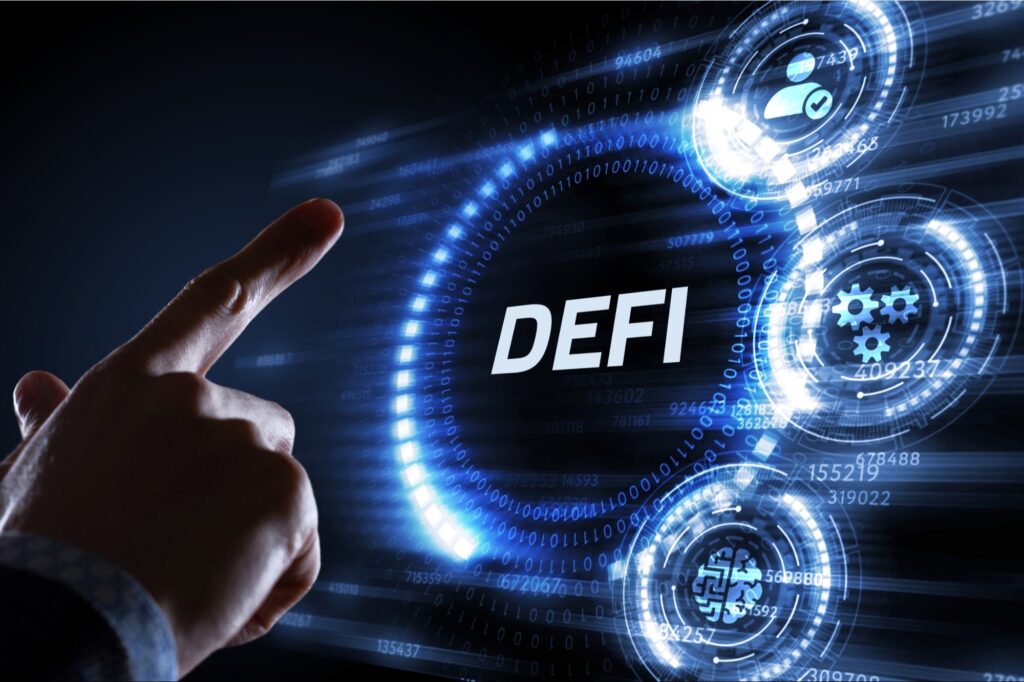Digital innovations improve financial system efficiency, security, and transparency. Blockchain could transform banking. Financial institutions use blockchain, the Bitcoin decentralized ledger. Blockchain could change global banking by 2025. This affects banking’s future. Examine Blockchain Transforming technology’s transformative potential, benefits, and bank adoption challenges.
Blockchain’s Impact on Banking Security
Blockchain records transactions across several computers, so distributed and decentralized a digital ledger system makes it almost impossible to alter any record without altering all next blocks. Blockchain’s decentralizing guarantees security and openness unlike those of databases. Blockchain could improve banking security, lower fraud, and simplify procedures, so.
Strengthening financial transactions’ safety and efficiency. Blockchain has several applications even if most people connect it with Bitcoin. Blockchain streamlines loan approvals, cross-border transactions, identity verification, and bank payment processing. Financial companies like blockchain since it lowers costs, accelerates processes, and improves openness.
Blockchain Enhancing Security Transparency
One advantage of blockchain for banking is security. Blockchain Transforming records are unchangeable because they are linked and encrypted. Once documented, a transaction cannot be undone, so offering security is unlike that of conventional banking systems. Although blockchain protects payment transactions, digital banking is prone to fraud.

Cyberattacks. Blockchain’s openness appeals to banks and consumers. Since all network participants can view every transaction, banks’ and authorities’ real-time financial monitoring is simplified. Verification of transactions free from middlemen reduces expenses and speeds up the process.
Blockchain’s Potential Transactions
Cross-border payments present another area where blockchain technology might have a major influence on banking. Conventional international money transfers come with high fees and sometimes take several days to handle. But blockchain technology lets almost instantaneous peer-to-peer transfers free from middlemen like clearinghouses and correspondent banks. Blockchain.
Technology lowers transaction costs and increases the efficiency of cross-border payments by cutting the middlemen engaged in the process. Blockchain for cross-border payments is already under experimented by some of the big financial institutions. For instance, Ripple makes faster and more reasonably priced worldwide money transfers possible using blockchain technology. This could become the norm across the banking sector by 2025, drastically altering international money flow.
CBDCs Blockchain’s Impact on Digital Currency
The use of blockchain technology to issue Central Bank Digital Currencies is being investigated by central banks around the world. In contrast to Bitcoin, which functions independently of banks, CBDCs are digital currencies that are backed by the state. They blend the stability of fiat currencies with the advantages of digital currencies.
By 2025, more central banks might adopt CBDCs, which have already been introduced or are currently being tested by China, Sweden, and the EU. Adoption of CBDC may alter how money is transferred and stored. Blockchain has the potential to secure and expedite financial inclusion and digital currency settlements.
Blockchain and Decentralized Finance (DeFi)
Decentralized Finance (DeFi) is another blockchain-driven financial sector trend. DeFi provides blockchain-based financial services like lending, borrowing, and trading without banks or intermediaries. Smart contracts, self-executing contracts with coded terms, make DeFi platforms’ financial services more accessible, transparent, and efficient. By 2025, DeFi could become.

An integral part of the global financial ecosystem, allowing individuals and businesses to access financial services without the need for a traditional bank account. For example, DeFi platforms enable users to lend their cryptocurrency to others and earn interest, or trade assets without the need for a central exchange. The potential for DeFi to disrupt traditional banking models is enormous, and blockchain is at the heart of this shift.
Challenges Blockchain Adoption in Banking
Although blockchain has many advantages, its broad acceptance in banking will present several difficulties. One main problem is regulatory uncertainty. Since blockchain is new, authorities are building financial services structures. Different nations have different digital currencies and blockchain rules, which could confuse and impede banks from implementing blockchain solutions.
Scalability counts. Despite its low transaction volume, Blockchain Transforming is secure and open. Blockchain will support global financial market transaction volumes, making scalability more important. Banking, which uses legacy systems, will need significant infrastructure and technological investments to switch to blockchain. Banks must train staff, develop new processes, and work with financial systems. Change may take time and money.
Summary
Blockchain could change banking by 2025. Blockchain will improve bank security, transaction speeds, costs, and product and service creation. CBDCs could change money issuance and transacting, while DeFi could create a bank-free financial ecosystem. Blockchain has banking potential, but it needs regulatory clarity, technological advancements, and industry collaboration. Despite these obstacles, blockchain will transform finance. Blockchain will power the next generation of banking by 2025, making it safer, more transparent, and more efficient.


